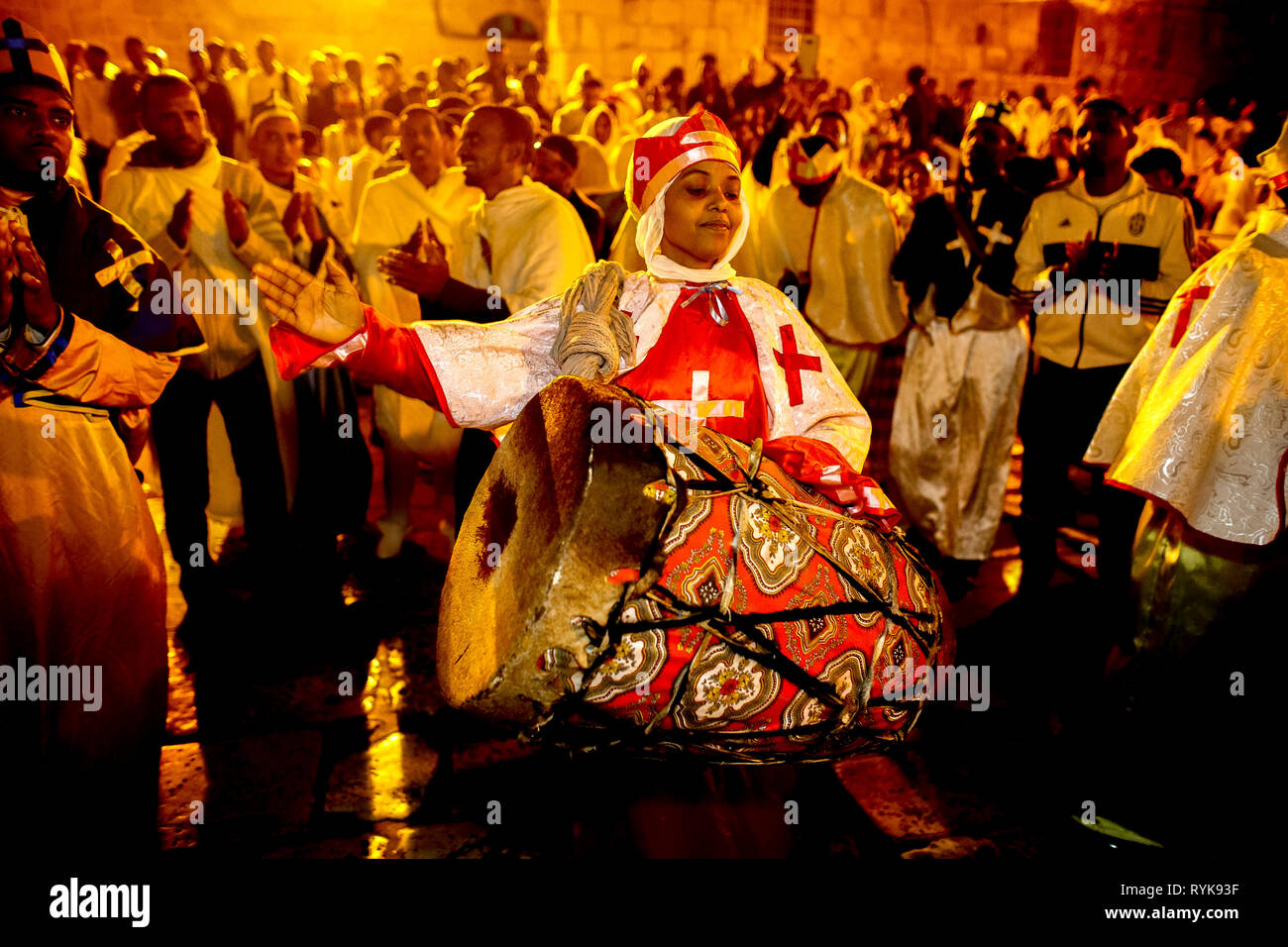Fasika (Ethiopian Orthodox Easter)
Overview:
Date of Celebration: Fasika (Ethiopian Orthodox Easter) is celebrated on a different date each year because it follows the Ethiopian Orthodox calendar, which is based on the Julian calendar rather than the Gregorian calendar. It typically occurs later than Western Easter and often falls in April or early May.
Significance: Fasika celebrates the resurrection of Jesus Christ, which is the central event of the Christian faith. It marks the victory of Christ over death and sin, symbolizing eternal life for all believers. The holiday is the culmination of Lent, a period of fasting and prayer, and is one of the most important religious celebrations in Ethiopia.

Historical Context:
Fasika commemorates the resurrection of Jesus on the third day after His crucifixion, as recorded in the New Testament Gospels. This event is the foundation of Christian faith since the resurrection affirms Christ's divinity and His triumph over death.
In the Ethiopian Orthodox Church, Fasika is preceded by an intense period of fasting known as Tsome Fasika, lasting for 55 days. During this period, adherents abstain from animal products, devoting themselves to spiritual reflection, penitence, and prayer in preparation for Christ’s resurrection.
Cultural and Religious Practices:
- Lenten Preparations and Fasting:
Fasika follows a 55‑day fast during which Ethiopian Orthodox Christians refrain from eating meat, dairy, eggs, and other animal products. This fast is not only a dietary discipline but also a period of spiritual purification, self-discipline, and intense prayer, preparing individuals for the joyous celebration of the resurrection.
- Holy Week (Lideta):
The final week of Lent, known as Holy Week or Lideta, commemorates the last days of Jesus’ life. Special church services, dedicated prayers, and additional fasting mark this period.
On Holy Saturday, the faithful hold vigils throughout the night, symbolizing the period between Christ’s crucifixion and His resurrection. These vigils are deeply spiritual, fostering an atmosphere of solemn anticipation and communal unity.
- Easter Vigil and Midnight Service:
On the night preceding Fasika, Christians gather for the Easter Vigil, beginning with midnight prayers. During the vigil, candles are lit, and scriptural passages that recount Christ’s resurrection are read aloud.
At midnight, the church bells ring, and the congregation joyfully proclaims, "Christ is Risen!" This climactic moment is celebrated with uplifting hymns, chants, and a symbolic procession around the church, marking the definitive triumph of life over death.
4. Breaking the Fast with a Feast:
After the vigil, Fasika is celebrated with a grand communal feast. Families and communities gather to share meals that break the long fast. Traditional Ethiopian dishes, such as Doro Wat, Injera, and Atayef (sweet pastries), are served. This festive meal is a celebration of abundance, gratitude, and the joyous renewal that the resurrection signifies.
5. Holy Communion and Liturgical Services:
Central to the Fasika celebration is the partaking of the Eucharist (Holy Communion). Ethiopian Orthodox Christians receive the body and blood of Christ during a special church service, uniting them spiritually with the miracle of the resurrection. The service features hymns sung in the ancient Ge’ez language, deepening the sense of tradition and continuity within the church.
6. Visiting Family and Giving Gifts:
Fasika is also a time for family reunions and communal bonding. Many people travel to be with family, share meals, and exchange gifts as a gesture of love and unity. Acts of charity during this season embody the Christian values of compassion and generosity.
7. Traditional Easter Games and Social Gatherings:
In some regions, Fasika is celebrated with traditional games such as running races, horseback riding, or other local competitions, which serve to strengthen community ties and encourage festive merriment. Public gatherings often involve dancing and singing, reinforcing the communal and joyful spirit of the holiday.
Significance for Ethiopians:
Fasika is the most significant religious holiday for Ethiopian Orthodox Christians.
It celebrates the resurrection of Jesus Christ and symbolizes His victory over death, which is the cornerstone of Christian hope for eternal life.
The prolonged period of fasting prior to Fasika fosters spiritual renewal and discipline, while the ensuing feast and communal celebrations epitomize joy, gratitude, and the renewal of faith.
Conclusion:
Fasika is a profound and joyous celebration that encapsulates the core of Ethiopian Orthodox Christian faith.
From the strict 55‑day fast and heartfelt Holy Week observances to the exuberant midnight vigil, festive feasting, and the central act of Holy Communion, Fasika is a day of spiritual renewal and communal joy.
It is a time when the faithful come together to celebrate the resurrection of Jesus Christ, reaffirm their spiritual commitments, and enjoy the blessings of a renewed life in Christ.